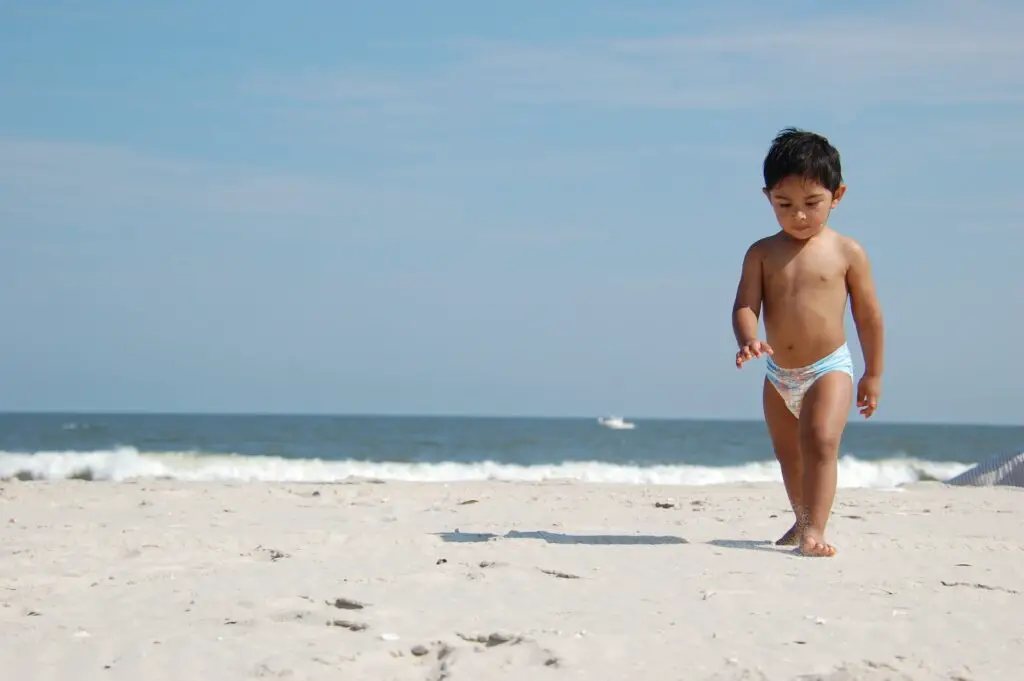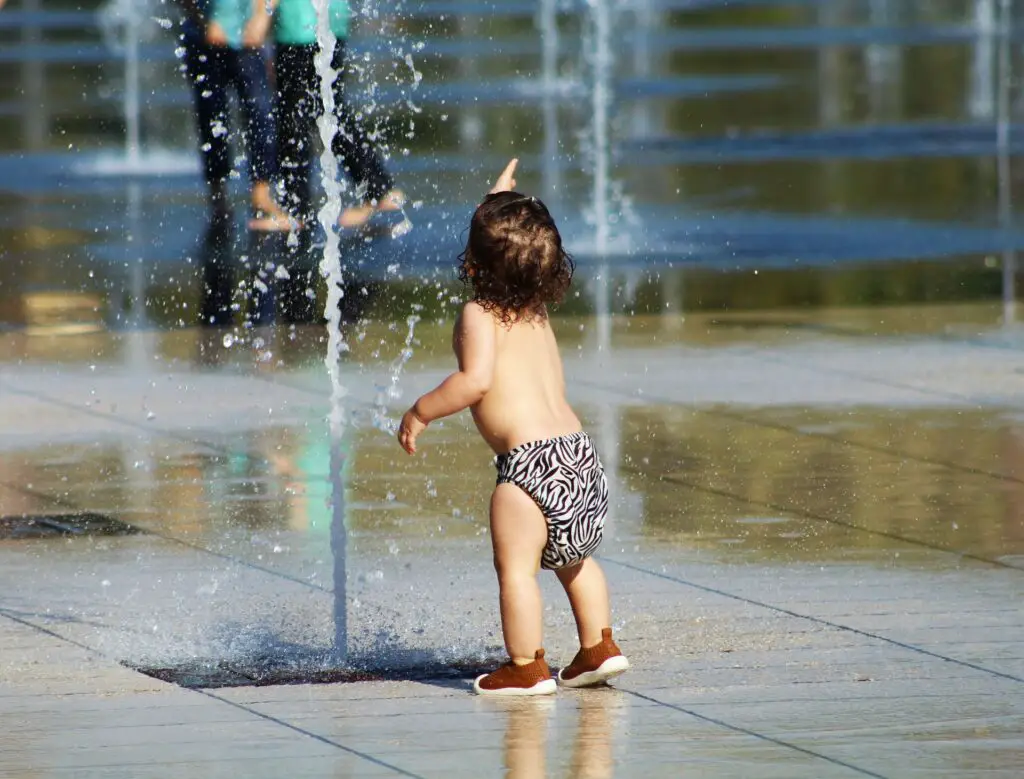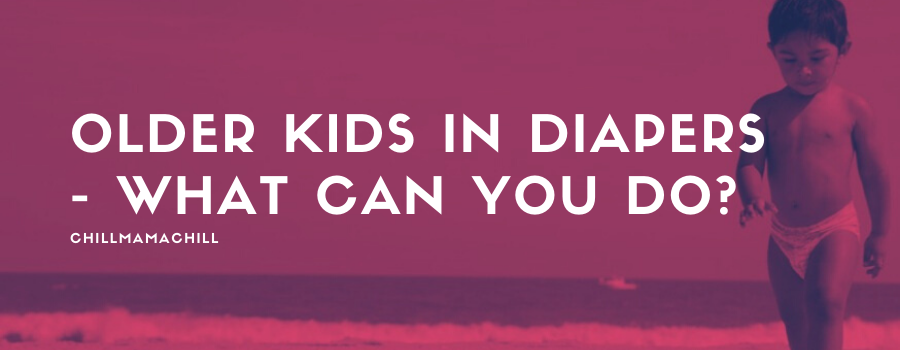Some breeze right through it, while for others, potty training presents insurmountable hurdles. No mum, however protective, doesn’t want to say goodbye to diapering. Delays happen, even spanning a couple of years, as each child develops at their unique pace. But what if you end up with older kids in diapers? What can you do to help?
Some children self-prompt to start using the potty, while others need a little nudge. Whether it’s a psychological, medical, or behavioral problem, tools and solutions exist for older kids in diapers. By understanding your child’s developmental readiness, you can approach training with the aim of combating what’s holding them back.
If your child is still below two years old, getting out of diapers is still a non-issue. When they’re still clinging on to their nappies past age three, however, it’s time to ramp up potty training. Below, you’ll find the factors that influence the age children are ready to stop using diapers.
What Are the Reasons My Older Kid is Still in Diapers?
For each child, age varies when they’ll finally do away with diapers. Emotional and physical maturity is required for children as too early or too late can cause delays or regression. Successful potty training hinges on timing.

It’s crucial, however, that your kid is ready if they’re to successfully ditch diapers from anywhere between 18 to 24 months of age. Signs of readiness that your child should start potty training include;
- Being able to follow basic instructions
- Can stay dry for up to two hours
- Has an interest in using a potty
- Removes soiled diapers or asks to be changed
- Has regular bowel movements
- They want to wear underwear
Expert advice aside, you know your child better than anybody. Big kids with developmental delays are a legitimate concern, and you’re not the only parent seeking help. You must understand their motivations to continue using diapers, whether physical, emotional, or a combination of both.
Physical Issues
In diapers, your older kid may be suffering from an overactive or smaller bladder, causing them to go more frequently or wet the bed. If your child is embarrassed or uncomfortable about being unable to stay dry, they’ll cling to diapers as the safer and less unfamiliar option.
Emotional Issues
While these may be more subtle and unrecognizable to you, emotional problems can arise from what’s going on around your child. If there are significant or life-changing events, they can have a bearing on your kid’s diaper propensity.
When a three-plus-year-old revert to nappies or starts soiling their pants, causes of distress can be arising from;
- A person in your child’s life moving or dying
- Marital problems or domestic discord
- Having a new sibling
- Are you leaving to return to work?
- Change of daytime caregivers
If any of these questions bring a positive answer, you’ve found out why your older kid is still in diapers. Emotional comfort could be responsible for why your child feels the need to revert to earlier, younger days. Be as loving and patient as you possibly can, or see a pediatrician who may recommend counseling for both of you.
Your Behavior Can Affect Your Child’s Developmental Readiness to Ditch Diapers
Keep your expectations consistent when potty training helps motivate your child so they can finally ditch diapers. But if your older kid has physical or physiological issues affecting developmental readiness, it’s best to talk to a pediatrician.

Your actions as a parent will also factor in how soon your child can potty train. As such, these actions will help your older kid in diapers start down the road of ditching them. These include;
Hide All the Diapers
Letting your older kid have access to diapers is only enabling them within their comfort zone. Get rid of nappies and start encouraging frequent toilet visits, creating familiarity that will breed cognitive behavior.
Besides not keeping diapers in their line of sight, please don’t give in to their requests for nappies. Otherwise, your child senses your lack of seriousness. While tantrums may occur with your refusal, it’s easier to manage these than furthering or delaying potty training. Therefore, store or hide away any diapers within your house.
Avoid Training Pants
Pull-up training pants are a popular transition tool for kids when they stop using diapers and looking to wear regular underwear. But they can form a hindrance to your child and leave them wanting to wear diapers past their age levels. These disposable pants mimic nappies and will offer your older kid a toilet option other than their potty.
Kids who are developmentally ready to step away from diapers suffer prolonged training, especially for night-time short calls. The AAP estimates that 20% of five-year-olds suffer occasional bed wetting, as so do 10% of 7-year-olds. If you’re using pull-up training pants at night, only use them at that time and then ensure they’re inaccessible to your child at other times.
How Can I Potty Train My Older Kid in Diapers Effectively?
Early potty training helps your child develop self-control and learn toilet etiquette, making them more responsible and independent. It’s also a boon for mum as if your kid is out of diapers by age two, it’s goodbye to smelly nappies and wiping soiled bottoms.
Using the potty is also more hygienic than pooping or urinating in diapers, resulting in rashes or skin infections. No doubt it’s also pocket-friendly because buying disposable nappies is over. Not to forget all the accompanying wet wipes, talcum, creams, and other diapering essentials that have been breaking your bank.
If your child is having difficulties adapting to the toilet, be supportive and positive at all times. It’s easy to lose your cool and punish your kid for having an accident during potty training. Using shame, embarrassment, or comparisons with other kids will only create other deep-seated psychological issues while not alleviating their problem.
A few tips that you can incorporate into your potty-training schedule for an older kid whose still in diapers include;
Set a Potty Time Timer
A timer reminding your older kid in diapers to use the potty will help establish a routine. If the time set lapses, your child has to sit on their toilet whether they feel like going or not. Avoid prolonging their stay on the loo, limiting them to a couple of minutes, especially when nothing is coming.
Begin an After Meals Toilet Schedule
Approximately 15 or 20 minutes after every meal, let your older kid who’s struggling with diapering sit on the potty. That’s the duration for typical bowel movement time in children, which is particularly essential when nearing bedtime.
Encourage Your Child
Even when the older kid hasn’t stopped using diapers, it’s vital to offer encouragement, especially in front of their peers. You can point out that your child no longer wears nappies, and when they’re proud, they’ll seek to maintain that status quo.
Make It Easy to Use the Potty
During potty training, ensure your child uses basic clothes and undo them when the urge to go arises. Avoid dressing your kid in zippered, belted, or one-piece outfits that may get in their way of using their potty. Keep the bowl in an accessible place, and you can use a reward system like stars or offering to take them to their favorite restaurant.
Turn Potty Time into a Game
When your older kid wants to use the potty, make it fun with games like rushing to see who reaches the toilet first. The winner will get to go before the loser, so it’s essential to let your child win. Put a couple of cheerios or fruity loops in the bowl for your boy learning to pee standing up. That’ll provide enjoyable target practice with his urine stream.
Talk about It
Seeing as your older kid can communicate, have an open discussion about potty training and why they should stop using diapers. Listen to your child’s fear and ensure you’ve dealt with the concerns, and only then will they feel comfortable or confident enough to use the toilet.
In that vein, they offer high praise when they make steps towards diaper independence as a means for positive reinforcement.
Dealing with older kids in diapers requires a load of encouragement and not making your child feel bad about their apparent setbacks. Your attitude and actions will have an impact on how successful potty training will ultimately be.
Conclusion
There’s no specific age for kids to stop using nappies and transition to a bowl and then the toilet. A child who is autistic or has similar developmental delays can be in diapers for years. But a kid whose other aspects of growth are normal needs to be patiently potty trained by the time they read pre-school age.
The toilet remains unfamiliar to your older kid due to the comfort they get from familiar diapers. Frustration, criticism, and shaming or embarrassment will delay success in ditching diapers. When the issue has gone further despite your efforts, seek professional advice or talk to your pediatrician.

I’m Cathrine and I’m a 39-year-old mother of 3 from Utica, New York. And I’m extremely happy you’ve come to visit my hide-out on the web. Here I post about everything related to family-life and usually it will involve babies and lessons I’ve learned over the years from experts, friends, and my own mistakes. So hopefully you will find what i write fun and informational!


